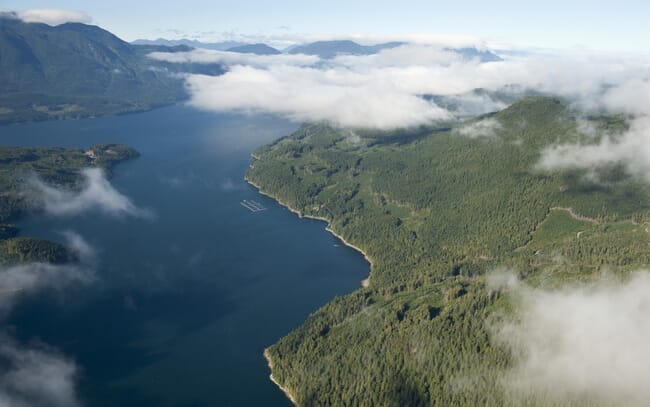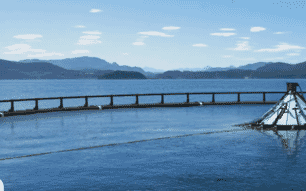
The province produced 90,000 tonnes of salmon in 2023 © BCSFA
Tim Kennedy, president and chief executive of the Canadian Aquaculture Industry Alliance (CAIA) said that the transition plan is irresponsible because it threatens 5,000 highly paid and skilled jobs in coastal British Columbia; unrealistic because transferring the sector to closed containment by 2029 is logistically impossible; unreasonable because there is no scientific basis to this decision; and unachievable because it threatens to destroy economic value, an enhanced innovation pathway, jobs and high-quality Canadian food production.
Brian Kingzett, executive director of the BC Salmon Farmers’ Association, said the focus on unproven technology “jeopardises the sector’s ability to fulfil agreements with rights-holder First Nations and will cause further harm to our communities”.
Meanwhile Grieg Seafood said it will suspend any investments in BC and await the draft transition plan due at the end of July to assess further actions.
The government’s plan
Announcing the plan - which is supposedly designed to protect the province's wild Pacific salmon - federal fisheries minister Diane Lebouthillier said she would renew licences for existing BC marine farms for the next five years, with stricter conditions to ensure improved management of sea lice on farmed fish, robust reporting requirements for the industry, and additional monitoring of marine mammal interactions.
After 1 July, only closed containment systems - either marine or land-based - will be considered for new salmon aquaculture licences.
“The government is firmly committed to taking concrete steps to protect wild Pacific salmon. Today, I’m announcing the essence of a responsible, realistic, and achievable transition that ensures the protection of wild species, food security and the vital economic development of British Columbia’s First Nations, coastal communities and others, as we keep working towards a final transition plan by 2025,” said Lebouthillier.
“Ending open net aquaculture is a transformative shift that will make Canada a world leader in sustainable aquaculture production and preserve BC’s pristine coast and fragile ecosystem for generations to come,” added Taleeb Noormohamed, MP for Vancouver Granville.




